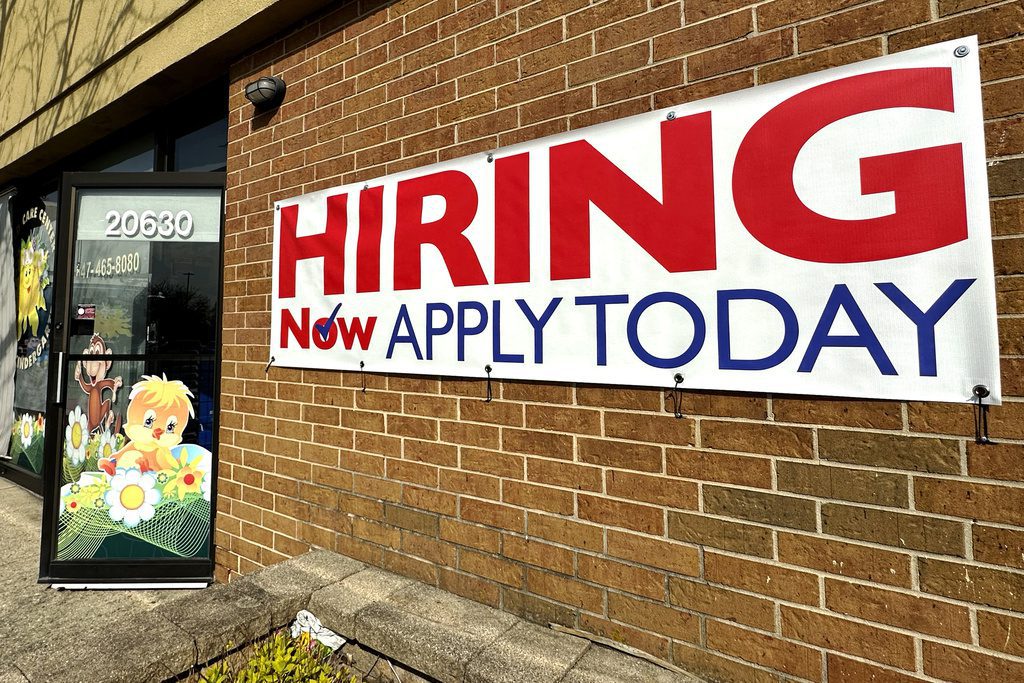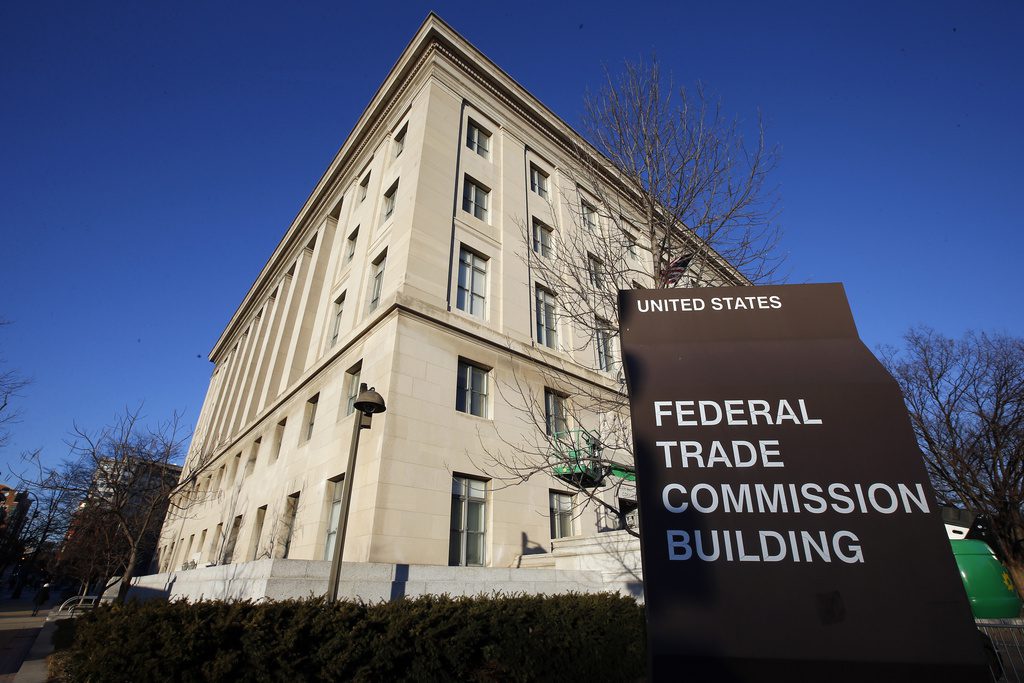
Sen. Tammy Baldwin (D-WI) speaks during a news conference regarding women’s health care, on Capitol Hill May 23, 2019 in Washington, DC. The news conference was held to discuss the reintroduction of the "Women's Health Protection Act " and address the state-based attacks on abortion rights. (Photo by Mark Wilson/Getty Images)
Poll: 68% of likely voters oppose a national ban on abortion, according to a new Courier Newsroom/Data for Progress survey.
Americans widely oppose the idea of a national ban on abortion—an idea the most powerful Republican lawmaker in the country admitted was “possible”—according to a new Courier Newsroom/Data for Progress poll.
Sixty-eight percent of likely voters across the country, including majorities of Independents and Republicans, said they oppose a national ban on abortion, with 55% saying they “strongly oppose” it. Only 24% of likely voters would support such a ban, making it a deeply unpopular idea.
And yet, Republicans may pursue it anyway if the US Supreme Court strikes down Roe v. Wade—as a leaked draft opinion suggests it will.
If Roe were to be struck down, it would once again allow states to ban abortion. In Wisconsin, an 1849 law that bans abortion with no exception for victims of rape or incest would likely go back into effect, and force women to travel to Illinois or Minnesota to get care. The nation would be a patchwork of 50 states with 50 different abortion laws—unless, of course, the federal government bans abortion, which is very much on the table.
Sen. Minority Leader Mitch McConnell recently told USA Today that if the Court did ultimately strike down Roe, it’s “possible” that a Republican-led federal government could ban abortion nationwide.
“If the leaked opinion became the final opinion, legislative bodies—not only at the state level but at the federal level—certainly could legislate in that area,” McConnell said. “If this were the final decision, that was the point that it should be resolved one way or another in the legislative process. So yeah, it’s possible. It would depend on where the votes were.”
In the interview, McConnell also implicitly said it was “pretty clear where Senate Republicans stand” on abortion: they’re against it.
Wisconsin’s Republican Sen. Ron Johnson—who has supported federal abortion restrictions in the past and is up for re-election in November—downplayed the impact that overturning Roe v. Wade would have on his constituents.
“It might be a little messy for some people, but abortion is not going away,” he said, suggesting that driving across state lines to Illinois would probably be an option. “I just don’t think this is going to be the big political issue everybody thinks it is, because it’s not going to be that big a change.”
Wisconsin Democrats disagree and believe Johnson’s views on abortion could prove costly for him in November.
“Ron Johnson has worked tirelessly to strip people in Wisconsin and across this nation of their reproductive rights,” said Philip Shulman, spokesperson for the Democratic Party of Wisconsin. “Wisconsinites are going to send a message in November that Ron Johnson doesn’t have a right to dictate a person’s ability to make their own health care decisions.”
The most powerful anti-abortion groups have also been explicit that they plan to push for a total ban on abortion nationwide if Republicans take back control of the White House, House, and Senate in 2024. According to the Washington Post, a group of Republican senators has even discussed introducing a bill to ban abortion at around six weeks, before many women even know they’re pregnant.
The Biden administration has also sought to make clear the risk that a Republican-led government could outlaw abortion.
“I think we’re at serious risk,” since-departed White House press secretary Jen Psaki said earlier this month. “Mitch McConnell and other Republicans in Congress are talking about a national ban on a woman’s right to choose.”
Democrats have also tried to pass their own bill to codify the right to abortion into federal law. The Women’s Health Protection Act would guarantee abortion access free from medically unnecessary restrictions, limitations, and bans that delay, and at times, completely obstruct, access to abortion. If the proposal were to become law, it would effectively render the Supreme Court’s decision moot and override any state laws banning or restricting abortion access, guaranteeing access to care nationwide.
The House passed the Women’s Health Protection Act earlier this year, but the bill failed in the Senate, as only 49 Senators—all Democrats, including Wisconsin Sen. Tammy Baldwin—voted to open debate on the legislation, far shy of the 60 votes needed. Johnson voted against the effort.
The poll also found that voters are feeling unhappy about recent developments around abortion, such as the leak of the court opinion, the possibility of a national ban, and state bans on abortion that don’t include exceptions for rape or incest.
When asked to choose up to three emotions to describe how they felt about recent developments around abortion, nearly half (47%) of respondents said they felt “worried,” while more than four in 10 reported feeling “angry” or “sad.” The negative feelings were mostly reported by Democrats and independents.
Republican voters, meanwhile, did not report any feelings—either positive or negative—in high numbers. Twenty-nine percent of Republican respondents said they felt “worried,” while 27% reported feeling “sad.”
The numbers were even lower on the positive emotion side of the ledger. Only 13% of Republican likely voters said the recent developments around abortion made them feel “happy,” while one out of every four Republican voters said it made them feel “hopeful.”
Voters also expressed concern about the legitimacy of the conservative-controlled Supreme Court. Nearly half (48%) of respondents—including 69% of Democrats—said that overturning Roe would weaken the court’s legitimacy. Only 21% of likely voters said striking down Roe would strengthen the Court’s legitimacy, and 31% said it would make no difference.
Methodology; From May 13 to 17, 2022, Data for Progress conducted a survey of 1,109 likely voters nationally using web panel respondents. The sample was weighted to be representative of likely voters by age, gender, education, race, and voting history. The survey was conducted in English. The margin of error is ±3 percentage points.
Politics

Biden administration bans noncompete clauses for workers
The Federal Trade Commission (FTC) voted on Tuesday to ban noncompete agreements—those pesky clauses that employers often force their workers to...

Opinion: Trump, GOP fail January 6 truth test
In this op-ed, Milwaukee resident Terry Hansen reflects on the events that took place on January 6, the response from Trump and other GOP members,...
Local News

Readers Poll: Top Bowling Alleys in Wisconsin
Looking for the best bowling in Wisconsin? Look no further! Our readers have spoken in our recent poll, and we have the inside scoop on the top...

8 Wisconsin restaurants Top Chef judges are raving about
Top Chef’s 21st season is all about Wisconsin, and on-screen, it’s already apparent that the judges feel right at home here. But, while filming in...




